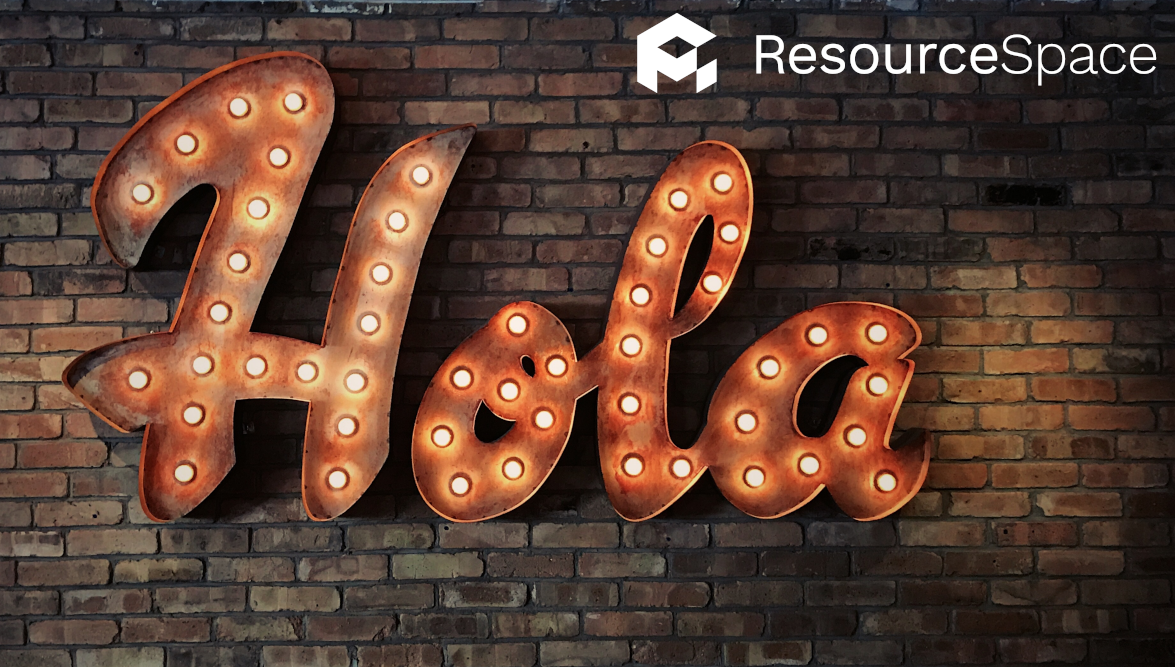
The team at ResourceSpace have been a joy to work with, helping us manage what could've been a really difficult transition every step of the way.
24th December 2018

Brexit has become an all-encompassing, ever present issue for many businesses. One of the greatest concerns remaining the uncertainty over whether the UK will transition out of the EU in an orderly fashion, or crash out uncontrollably on March 29th 2019.
With no future trade deal as yet finalised with the EU, businesses are preparing contingency plans to ensure that they can operate effectively and continue to trade internationally post Brexit. For many manufacturers, this means looking at their products and how they are marketing them, considering how their brand will translate globally.
There are many global brands that have discovered how expensive a lack of forethought, translation or transcreation can be. Remember HSBC, whose UK tagline of 'Assume Nothing' had a literal translation of 'Do Nothing' in many countries? Not exactly the global positioning statement they were looking for, and a costly mistake as it took $10 million to reposition the company with a more globally friendly strapline.
Similarly, as Lever Brothers found out in 2001, finding you later need to rebrand your product in a market can also be an expensive process. Branded 'Cif' for ease of pronunciation in 39 of the 60 countries in which it was sold, in early 2001 Lever Brothers announced that the cleaning brand 'Jif' was to be renamed 'Cif' in the UK. This relaunch of the Cif brand in the UK reportedly cost the company over £2 million, a costly process which could have been avoided with forethought.
And if the above examples aren't enough of a deterrent to using an automated translation service, reports abound that Google are now penalising companies who use their translation service to increase their ranking in other language search results. So now there's even an SEO reason to use transcreation services!
As if the above examples aren't enough of a deterrent to just using an automated translation service for your brand positioning when you cross borders - reports abound thatGoogle are now penalising people who use it's own translation service, for translating content in order to rank in Google for another language. So now there's even an SEO reason to use transcreation services!
Defined by GALA, the Globalisation Association, "localisation is the process of adapting a product or content to a specific locale. The goal is to provide a product with the look and feel of having been created for the target market to eliminate or minimise local sensitivities".
There's no point in spending millions looking for new markets to get your products into, only to discover that your product name or slogan is inappropriate or offensive in some cultures. Companies such as Nike and Apple are global brands with international appeal, largely due to having invested greatly in the marketing and localisation of their products to create mass appeal.
Unsettling delays have already affected the Brexit negotiations, which have themselves failed to reassure businesses or provide a solid direction in which to travel. As a result, companies are increasingly having to look at what they are offering and analyse how their products will be received globally.
Perhaps unsurprisingly, 95% of Chinese online consumers have a greater comfort level with websites in their own language, however, just 1% of US based products offer Chinese language websites. Maybe then, when GALA research shows that 83 languages reach 80% of the global market, deciding which markets you want to target should be your next consideration when preparing to enter a global market.
Take the example of McDonalds, arguably the ultimate symbol of globalisation. If you visit a McDonalds in Dubai, the products available will be vastly different to those offered in the UK. Go to McDonalds in India and you'll see a green chilli naan aloo and spicy rice bowl, yet in Mexico it's a meat feast with chipotle and ranch dressing. The brand boasts global appeal, whilst tailoring its products to each locale.
Likewise, confectioners Nestle recognise the importance of localising their products. In Japan the Kit Kat is available from a Kyoto version through to one heavily flavoured with Sake, the well known Japanese rice wine, in order to meet national market tastes.
Paul Jacobs, founder of Irish company Smart Storage, says "The perfect business market should be like a pyramid base: either you have a wide range of products you sell to a very particular area, or a large geographical area where you sell a very specific number of products". Jacobs already operates across the UK and Ireland, and is looking to increase his UK presence post-Brexit with a new manufacturing site here to cater to an ever-expanding UK market.
Regionalisation of products is the key to ensuring that you capture global markets at a local level. Product marketing should be regionally targeted so that customers in that area will buy into them at an individual level.
Consistency in quality and product is crucial when taking your brand global. Customers need to know they can be assured the same quality of product, regardless of where they are in the world. Advertising and marketing have a huge role to play in educating customers about what your product offers, and indeed what your company stands for. Values and ethics are integral to your company image, and recognisable branding is vital for successful global expansion. Carrying out due diligence to ensure brand names and products are truly localised and do not cause any offence is key in this.
Working with local marketing companies who can advise on your advertising strategy is one of the most important investments you can make, get it wrong, and there is huge potential for mistakes to be made when translating product names. Those which are acceptable in the UK or Europe, when translated for the Middle or Far Eastern markets, may have disastrous repercussions for your brand. Equally, there are massive gains to be made by ensuring that your products are ready for the global market and that your business is poised to take full advantage.
ResourceSpace help a number of manufacturers to ensure their brand positioning is consistent across the globe and their digital brand assets are always accessible - join them today and launch your free ResourceSpace instance >>
 |
 |
 |
 |